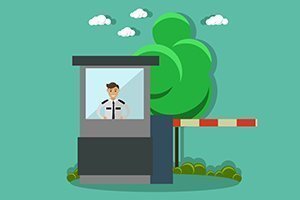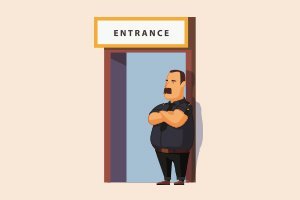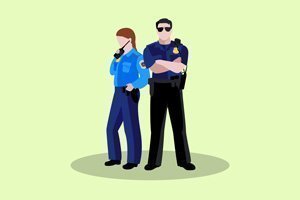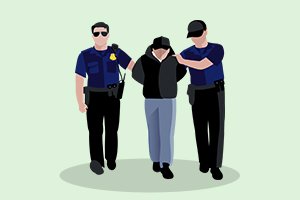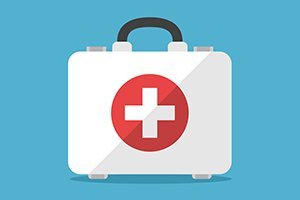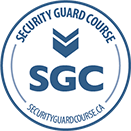Security Guard Use of Radio 10 Codes
Communication is an essential skill for security guard safety and the ability to deploy an effective response to each situation while on duty. As such, radio codes are integral to a security guard’s ability to provide proper service and protection on site. The Association of Public Safety Communications Officials (APCO) “10” Codes are standardized codes used for brevity in communication for security guards in the field. As a security guard in training, these codes must be familiar to you for quick usage and it is also a good idea to memorize the most commonly used ones.
In this post, we will walk you through the history of the radio 10 codes and the role they will play in your security guard training, on the security guard license exam and while on the job.
What are radio 10 Codes?
Radio 10 codes, also known as ten signals, were traditionally used by law enforcement for coded and discreet communication between officers and with dispatch. Developed by APCO in the late 1930’s to allow for a brief and standardized method of communicating over radio channels, there are 100 common 10 codes in the Security Guard Test Preparation Guide as provided by the Ontario Ministry of the Solicitor General. These codes have lasted the test of time as they are a standardized way for users of radio communication in the public safety sector, including security guards, to communicate important information concisely and privately.
When to use radio 10 codes
As each security guard encounters different responsibilities depending on their employer, official protocol for the specific place of employment is important for determining usage of radio 10 codes over a two-way radio. As a general rule, radio 10 codes are useful when they are used to communicate brief and concise messages to ensure that you are clearly understood. They are a good way to avoid miscommunication since the codes are simple and understood by all members of the team.
As part of your security guard training, be sure to study the importance of communication as a tool while on duty and the various radio 10 codes that could be used on the job depending on the situation. Keep in mind that each public safety and security job has different responsibilities, but in general your duties will include four main areas: observing and reporting, responding, protecting and requesting help. All of these areas require proper training in the use of radio 10 codes to ensure quick and effective action and radio communication on the job.
Ontario Security License
The Ontario Ministry of the Solicitor General requires that all security guards must have a valid security guard license in Ontario. This means that you will have to pass an exam and be entitled to work in Canada, in addition to having a clean criminal record and being 18 years of age or older. This exam can possibly contain questions about specific radio 10 codes. While plain language communication is important to the role, be sure to study and be familiar with the list of commonly used radio 10 codes for your exam and job preparation.
How to prepare for the Ontario Security Guard License Exam
Studying the important radio 10 codes that could be used while on the job is an important step in security guard training. To learn more about what kinds of questions may be asked on the security guard exam, and what kind of situations you may encounter on the job as a security guard, look for a registered training entity that is recognized by the ministry.
Security Guard Course (SGC) offers a radio 10 codes lesson as part of their Ontario Security License training. Since each security guard or private investigator in Ontario is required to pass the provincial exam prior to obtaining a license, this course is a great way to familiarize yourself with the information you will need to pass the exam and be successful in the field of public safety in Ontario.
If you have further questions about obtaining your private investigator or security guard license in Ontario, visit our Getting Started – Simple and Easy Guide to view answers to some of the most common questions from candidates looking to study and obtain their Ontario Security License.
Security Guard Course is offered by experts in the industry who have the knowledge and experience to properly train and prepare you for your role as a security guard in Ontario. In business since 2012, we offer a full range of training for the public safety sector in Ontario and can prepare you to succeed in your new and exciting career.

